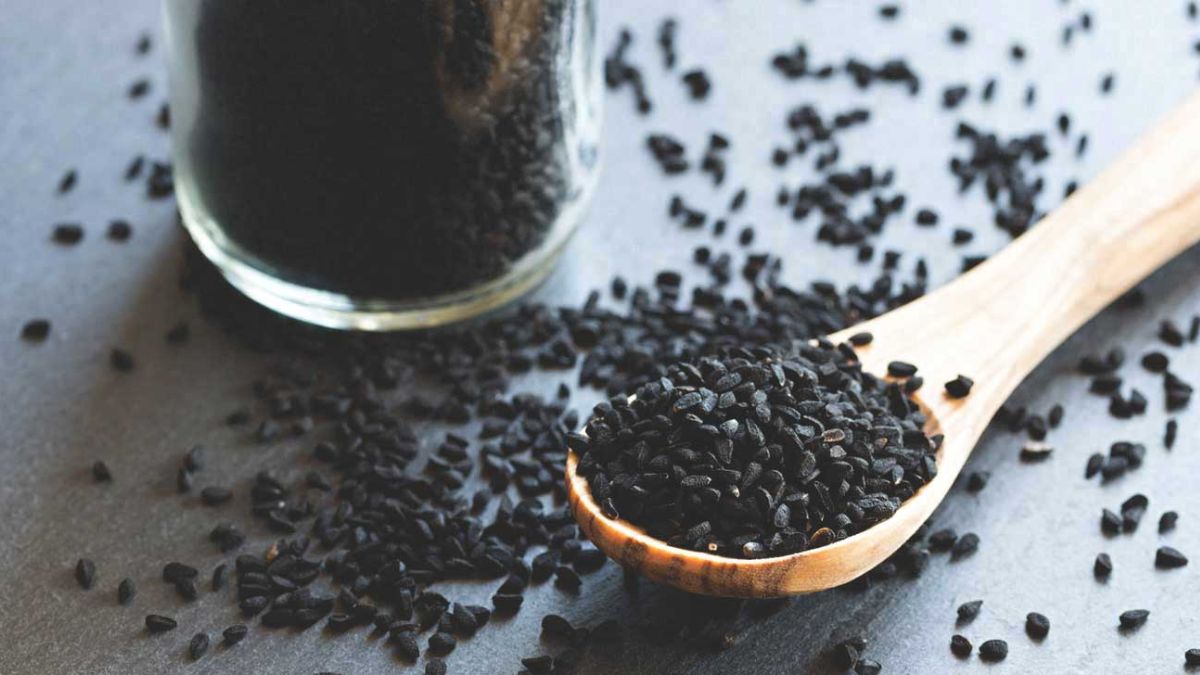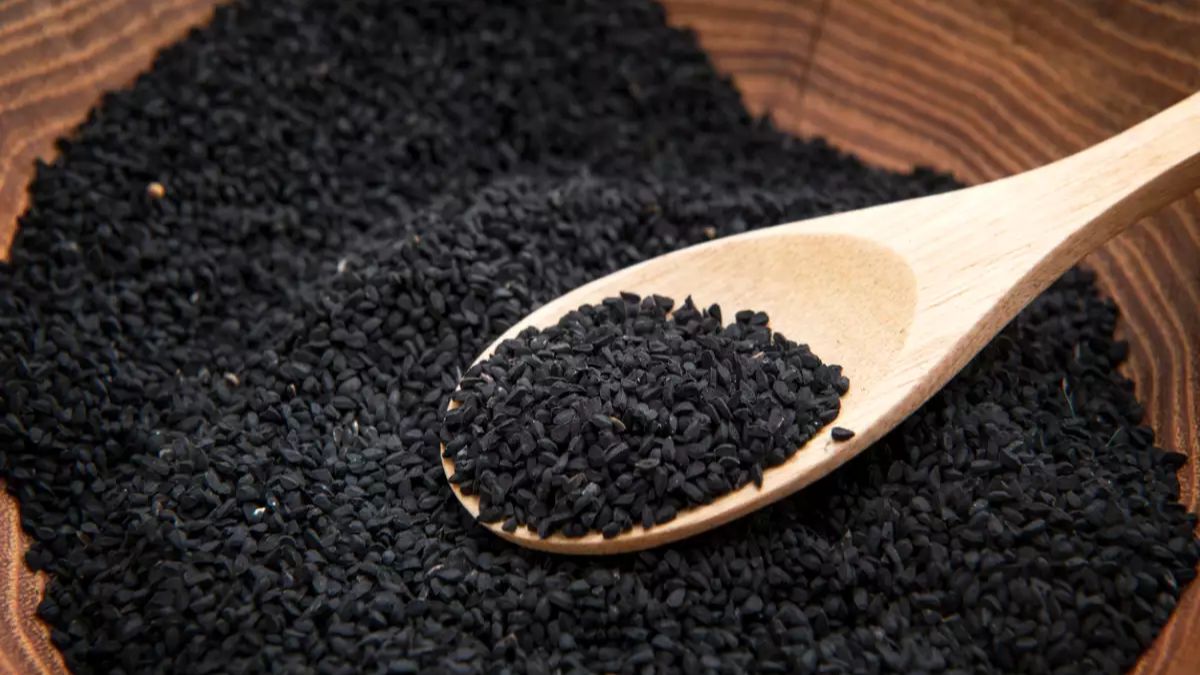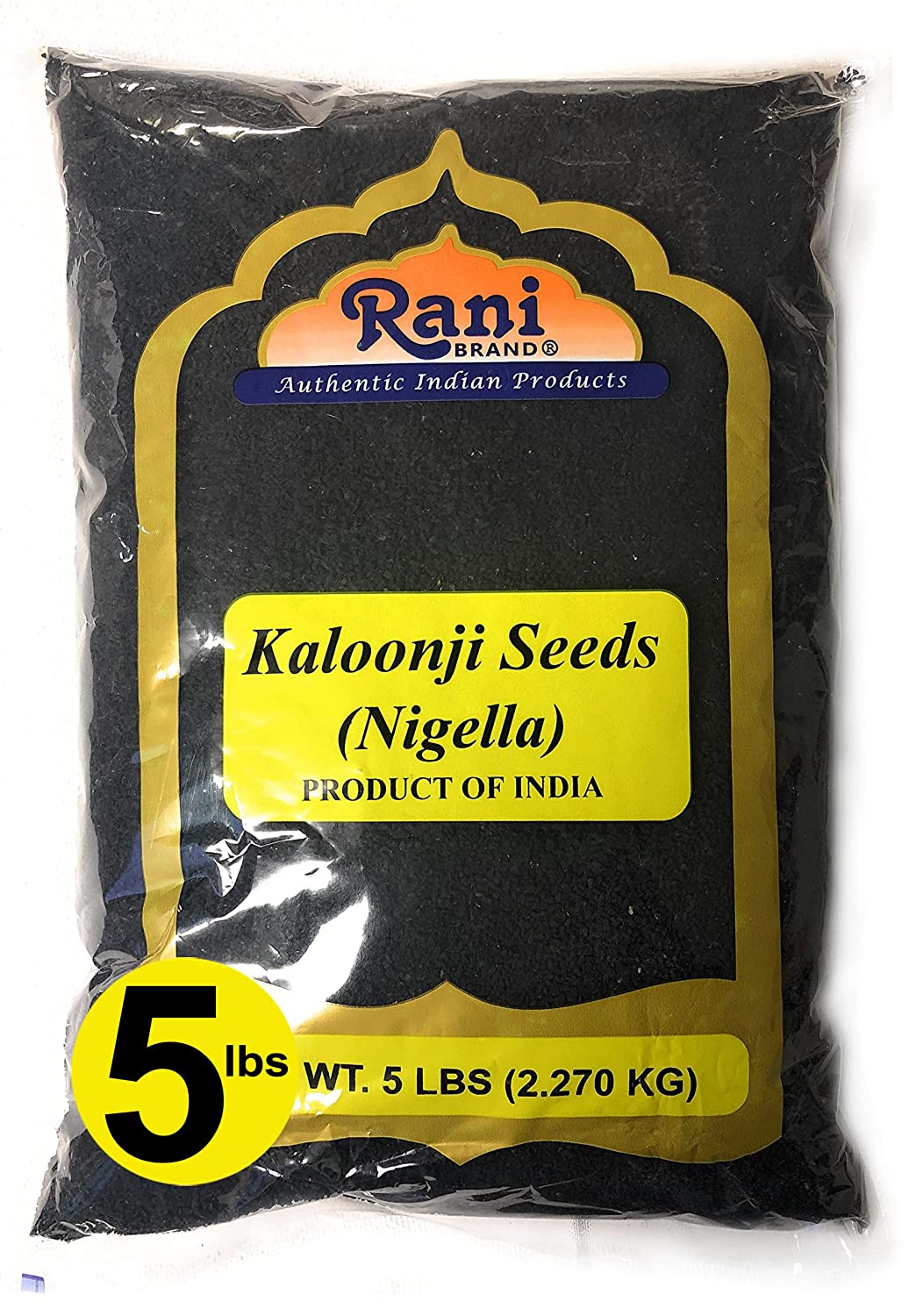Nigella seed is a black, drop-shaped seed used as a spice in Indian, Middle Eastern, and North African cooking. Its strong aroma and crunchy texture make it a great addition to bread and pastries. It’s also used in soups, stews, and curries.
What is Nigella Seed?
Nigella seed comes from the seeds of Nigella sativa, a flowering plant that grows in Turkey, Syria, and some parts of Iraq. Nigella is sometimes called other names, like black cumin, black onion seed, and black sesame seed. This can be confusing since nigella is unrelated to any of these things. It belongs to the Ranunculaceae family, including the buttercup and the delphinium.
Health Benefits of Nigella Seeds
Kalonji is a flowering plant in the buttercup family. It is also known as black cumin, nigella, and by its scientific name, Nigella sativa.
Kalonji is used in cooking and is also good for your health. It has been a natural cure for everything from bronchitis to diarrhea for hundreds of years. It can grow up to 12 inches (30 cm) tall and makes a fruit with seeds used as a flavorful spice in many dishes.
This article talks about five of the best benefits of Kalonji proven by science and how to add it to your diet.
Packed with Antioxidants
Antioxidants are substances that eliminate dangerous free radicals and keep cells from getting hurt by oxidation. Scientists have found that antioxidants can greatly impact health and disease. Some studies show that antioxidants may protect against cancer, diabetes, heart disease, and obesity, all of which are long-term conditions.
Thymoquinone, carvacrol, t-anethole, and 4-terpineol are some of the compounds in Kalonji that give it powerful antioxidant properties. One test-tube study found that kalonji essential oil also worked as an antioxidant. But more research is needed to find out how the antioxidants in Kalonji might affect people’s health.
May Lower Cholesterol
Cholesterol is a kind of fat that is found all over your body. Even though you need a certain amount of cholesterol, too much can build up in your blood and make you more likely to get heart disease. It has been shown that Kalonji is very good at lowering cholesterol.
One review of 17 studies found that taking kalonji supplements was linked to big drops in total cholesterols and “bad” LDL cholesterol and triglycerides in the blood. It was also interesting to find that kalonji oil worked better than kalonji seed powder. But only the seed powder raised “good” HDL cholesterol levels.
In another study, 57 people with diabetes who took Kalonji for a year saw their total cholesterol and LDL cholesterol decreased while their HDL cholesterol increased. Last, a study of 94 people with diabetes showed that taking 2 grams of Kalonji every day for 12 weeks lowered both total cholesterol and LDL cholesterol.
Could have Cancer-Fighting Properties
Kalonji has a lot of antioxidants, which help eliminate dangerous free radicals that can lead to diseases like cancer. Studies in test tubes have shown that Kalonji and its active compound, thymoquinone, may be able to help fight cancer. In one test tube study, it was found that thymoquinone caused blood cancer cells to die. In another study done in test tubes, kalonji extract was shown to help kill breast cancer cells.
Other test-tube studies suggest that Kalonji and its parts may also be effective against pancreatic, lung, cervical, prostate, skin, and colon cancers. But there is no evidence that Kalonji can prevent cancer in people. Kalonji needs to be studied to find out if it helps fight cancer when used as a spice or taken as a supplement.
Can Help Kill off Bacteria
There is a long list of dangerous infections caused by bacteria, from ear infections to pneumonia. Some studies done in test tubes have shown that Kalonji may have antibacterial properties and be able to kill some types of bacteria.
In one study, Kalonji was put on the skin of babies with a staphylococcal skin infection, and it worked just as well as a common antibiotic for treating bacterial infections.
In another study, the wounds of diabetic patients were used to find methicillin-resistant Staphylococcus aureus (MRSA), a strain of bacteria that is hard to treat and doesn’t respond to antibiotics.
In more than half of the samples, the amount of Kalonji used killed the bacteria. Several other studies in test tubes have shown that Kalonji can stop the growth of MRSA and many other types of bacteria. Still, there haven’t been many studies on humans, and more research is needed to find out how Kalonji might affect different types of bacteria in the body.
May Alleviate Inflammation
Most of the time, inflammation is a normal immune response that helps protect the body from getting hurt or sick. On the other hand, people think that cancer, diabetes, and heart disease can all be caused by chronic inflammation. Some studies have shown that Kalonji may help the body fight inflammation. In one study, taking 1,000 mg of kalonji oil every day for eight weeks decreased signs of inflammation and oxidative stress in 42 people with rheumatoid arthritis. In another study, rats’ brains and spinal cords were inflamed. Kalonji did a good job of preventing and stopping inflammation compared to a placebo.
In the same way, a test-tube study showed that the active ingredient in Kalonji, thymoquinone, helped pancreatic cancer cells become less inflamed. Even though these results look good, most human studies are only done on people with certain conditions. More research is needed to learn how Kalonji might affect inflammation in the general population.
What does it Taste Like?
Nigella seeds have a strong smell and a flavor with hints of onion, oregano, and black pepper. People have different ideas about how these flavors taste, and some may also get a hint of nuttiness. Because of these things, these savory seeds go well with salty foods.
Where to Buy Nigella Seed?
You can buy nigella seeds at Indian and Middle Eastern grocery stores, health food stores, whole food stores, and other specialty food stores. You can also buy them from several online stores.
Rani Kalonji (Black Seed, Nigella Sativa
How to Cook with Nigella Seed?
Nigella seeds are often used in the food of India, the Middle East, and North Africa. These seeds can be found in both lentil and curry dishes. Nigella seeds also go well with squashes like spiced butternut squash and root vegetables. Nigella sativa is used as a garnish or stir-fry ingredient on many dishes in Southern Asia. It is also used to make pickles, pilafs, curries, and dishes with vegetables.
Panch phoron is a popular spice mix from Bengal, including nigella, fenugreek, mustard, fennel, and cumin. Nigella is often used in bread and baked goods. In India, traditional naan bread is often made with nigella seeds. There are many other interesting ways to use nigella seeds. For example, sprinkle them on a salad to give it more crunch.
You can add nigella seeds to pancakes or scones as a way to start using them. You can also use them like sesame seeds when making your crackers. They also taste great sprinkled on eggs, salad dressings, and yogurt because they go well with dairy and add flavor and crunch. One of the best ways to use nigella seeds is to sprinkle them on homemade bread or bagels before you bake them.
Substitutions
nigella seed can be replaced with cumin seed, poppy seed, black sesame seed, caraway seed, or fennel seed. Some, like celery seed and cumin, will give you some of the nigella seed’s herbaceous flavor but not its black color. Others, like poppy and black sesame seeds, will give you the black color and a different but tasty flavor.
Oregano, either fresh or dried, is another choice. Even though it’s not a seed, this herb has a similar taste to nigella. In the same way, onion powder will give some of the flavors of nigella seed, but it won’t give it its essential seediness. True onion seeds are one thing you can’t use instead of nigella, even though you might think you can. This is because true onion seeds can’t be eaten. When recipes call for “onion seeds,” they mean “nigella seeds.”
Storage Tip
Nigella seeds can be kept with your other dried spices in tight-fitting jars or containers made of glass. They should be kept from heat and moisture, which will speed up the flavor loss. When kept in the right way, nigella seeds can last for up to six months.
Conclusion
The seeds of the kalonji plant are used in many different ways in cooking and medicine. Traditionally, Kalonji was used to treat a wide range of health problems. It has also been linked to a wide range of health benefits. But many have only been looked at in test tubes or animals. Even though more research needs to be done, adding Kalonji to your diet or taking it as a supplement could help your health in some ways.




